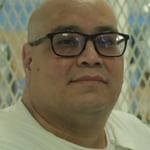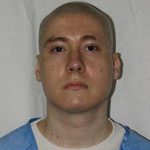
NEWS (5/7/20) — Florida: The Florida Supreme Court has upheld the death sentence imposed on Leonardo Franqui, denying post-conviction challenges to his death sentence based upon claims that he is ineligible for the death penalty because of intellectual disability and that his death sentence was unconstitutionally imposed after some members of his jury voted for life.
The court rejected Franqui’s claim of intellectual disability, saying he had not proven by clear and convincing evidence that he satisfied the diagnostic criteria for the disorder. The court did not address Franqui’s challenge to the high “clear and convincing evidence” burden of proof, saying he had waived the issue by failing to timely object to it in the trial court.
Franqui was sentenced to death in two separate incidents after non-unanimous jury votes. Three jurors voted for life in his first case and, after his death sentence in the second case was overturned on other grounds, two jurors voted for life in his resentencing trial. Having receded from its prior decisions that declared death sentences based on non-unanimous jury votes to be unconstitutional, the court denied Franqui’s non-unanimity claim.

NEWS (5/6/20) — Texas: The Texas Court of Criminal Appeals (TCCA) has upheld the ruling of a Dallas trial court that denied a new trial to death-row prisoner Charles Flores, whose conviction and death sentence were the product of hypnotically refreshed testimony. The TCCA said its decision was “[b]ased upon the trial court’s findings and conclusions,” which the appeals court acknowledged had simply “adopted the State’s proposed findings of fact and conclusions of law.”
No physical evidence links Flores, a heavyset Latino man, to the murder and, before hypnosis, the witness had described the suspect as a thin white man. Prosecutors did not allege that Flores was the actual killer. He was sentenced to death under the Texas “law of parties,” which subjects an accomplice to the same criminal liability as the actual killer, whether or not he or she participated in the killing or intended that a killing take place. Richard Lynn Childs, who pleaded guilty to the killing, was sentenced to 35 years and was released on parole in 2016.

NEWS (5/4/20) — California: The California Supreme Court has upheld the convictions and death sentences of Alfred Flores III for the March 2001 murders of three teenage boys. The court’s vote to uphold Flores’ convictions was unanimous. Two Justices, however, would have overturned his death sentence based upon the prosecution’s use in the penalty phase of trial of a videotaped confession obtained by police interrogation that continued after Flores said he did not want to talk about the murders.
Justices Goodwin H. Liu and Mariano-Florentino Cuéllar described Flores’ response to being asked whether he wanted to talk about the murders as unambiguous and said the use of the subsequently obtained confession violated Flores’ right to remain silent. The majority characterized Flores’ response to the police questioning as ambiguous and said law enforcement had been entitled to continue the interrogation.


